Praise for
Questions for Christians
In a world where many people think they have to search on their own for an ultimate meaning of life, John Morreall offers a compelling alternative: remain Christian but understand Christianity through contemporary, postmodern eyes. The book insists it is not only legitimate but essential to ask questions, and faith without questions is not really faith. Students and questioning Christians of all ages need to read this book.
Frederick J. Parrella, Santa Clara University
John Morrealls new book is a reexamination of Christian doctrine from a critical, historical-political perspective that aims at revealing how Greek-speaking theologians and Roman rulers distorted the message of Jesus and how this distortion was continued, rather than corrected, by succeeding generations of Christians. We have a book that will provoke diverse intellectual and theological reactions and discussions, which is always much valued in theological scholarship.
Najib George Awad, Hartford Seminary;
author of God Without a Face?
By the device of articulating apparently simple or even naive questions of the Christian tradition and then answering them in a way which is informed without being academicand radical in the sense of getting back to basicsMorreall has written a lively book that will inform and challenge those seeking to discover whether Jesus has good news for today. While he offers many points of sharp critique, he also helps the reader find hope in traditional structures. He also offers, in his ten tenets, a metric for measuring spiritual authenticity which is both astringent and insightful. Thus he provides a prophetic critique for our time and invites his readers to the kind of new life that flows from truthful interpretation and simple response to Jesus life and witness.
Stephen Cherry, director, Ministerial Development and Parish Support, Diocese of Durham, UK
The Surprising Truths behind
Basic Beliefs
John Morreall
ROWMAN & LITTLEFIELD
Lanham Boulder New York Toronto Plymouth, UK
Published by Rowman & Littlefield
4501 Forbes Boulevard, Suite 200, Lanham, Maryland 20706
www.rowman.com
10 Thornbury Road, Plymouth PL6 7PP, United Kingdom
Copyright 2014 by Rowman & Littlefield
Unless noted otherwise, quotations from the Bible are from the New Revised Standard Version.
All rights reserved. No part of this book may be reproduced in any form or by any electronic or mechanical means, including information storage and retrieval systems, without written permission from the publisher, except by a reviewer who may quote passages in a review.
British Library Cataloguing in Publication Information Available
Library of Congress Cataloging-in-Publication Data
Morreall, John, 1947
Questions for Christians : the surprising truths behind basic beliefs / John Morreall.
pages cm.
Includes bibliographical references and index.
ISBN 978-1-4422-2317-2 (cloth : alk. paper) ISBN 978-1-4422-2318-9 (electronic)
1. Theology, DoctrinalMiscellanea. 2. Theology, DoctrinalPopular works. I. Title.
BT77.M86 2014
230dc23
2014003497
 TM The paper used in this publication meets the minimum requirements of American National Standard for Information Sciences Permanence of Paper for Printed Library Materials, ANSI/NISO Z39.48-1992.
TM The paper used in this publication meets the minimum requirements of American National Standard for Information Sciences Permanence of Paper for Printed Library Materials, ANSI/NISO Z39.48-1992.
Printed in the United States of America
For Tamara, whos always got great questions
Chapter 1
Why Ask Questions?
As children, most of us asked lots of questions. Some still do, but many ask fewer and fewer as we get older. In matters of religion, asking questions can make people feel uncomfortable. Some think that it shows a lack of commitment to ones religion, even a lack of faith.
Many Christians today think of their religion as including a complete set of truths provided by the scriptures and church traditions. So to determine the truth about any issue, all anyone has to do is check the Bible and church doctrines. These people assume there are no religious questions that havent already been answered once and for all, so the only Christian who might need to ask a question is someone who hasnt looked up that bit of information in her Bible or creed. Like a geometry student who skipped the homework asking a question in class, she would already know the answer if she had read the book.
This simple way of thinking about Christianity as having a uniform set of truths started early. In the second and third centuries, church fathers such as Irenaeus, Origen, and Tertullian emphasized that the church was catholic, that is, universal. God had revealed one body of truths and so, Irenaeus wrote,
No matter how different the languages of the world, the contents of tradition are the same everywhere, and neither the churches found in Germany have another faith or another tradition, nor those in Spain, Iberia, Gaul, nor those in the East, Egypt, and so forth; but as Gods sun is one and the same for the whole world, so the preaching of the truth enlightens all men who are willing to see the truth.
Vincent of Lrin (d. 434) said that the teaching of the church is what has been believed everywhere, always, and by all.
A. Two Sources of Questions: Disagreement
and Change
If there really were such timeless, uniform teaching and belief among Christians, then there might be no need for them to ask questions, except for the geometry-class kind. The history of Christianity, however, shows that there has never been a uniform set of beliefs accepted everywhere, always, and by all. From the beginning, Christian groups have disagreed with each other, and over the centuries groups have changed their own beliefs. Where two people have contrary beliefs, they cant both be right. And where a group changes from one belief to a contrary belief, the old belief and the new belief cant both be right. In both cases, its reasonable to ask questions.
Most Christians know about the split between Roman Catholics and Protestants in the 1500s, but fewer are familiar with the split between Roman Catholics and the Greek Orthodox five centuries earlier. Around 1100, Anselm of Canterbury wrote Cur Deus Homo (Why the God-Man), a book in which he proposed a new explanation of salvation, the atonement theory. The death of Jesus on the cross, he said, was a payment to God for sin that allowed God to forgive humans and let them into heaven. Today many Christians think of the atonement theory as obviously correct, but before Anselm it hadnt been worked out. Most theologians before 1100 taught that the death of Jesus was a payment to Satan that got him to release the human race from bondage to him. Well explore these ideas in chapter 5, but the point here is that starting around 1100, Roman Catholics changed their beliefs about salvation to the atonement theory. And by then the Greek Orthodox had already broken away from the Roman church, so they never adopted the atonement theory. That theory, then, is not something believed everywhere, always, and by all.
The earliest disagreements between Christians go back a thousand years before the Catholic-Orthodox split, to the first Christians. They had contrary ideas about the movement they were starting. Some thought of themselves as a kind of Jews, and so required men joining the group to be circumcised. Paul and others thought of the movement as open to everyone and did not require circumcision. Right at the beginning of the movement, then, Christians faced the question Do the followers of Jesus have to be Jews?
Next page
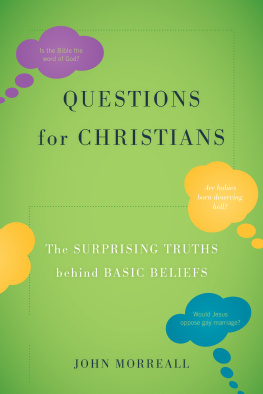

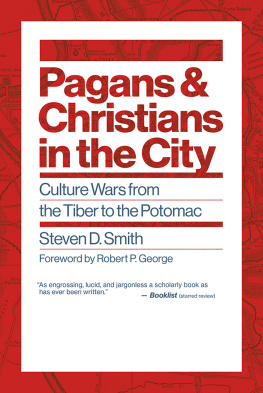

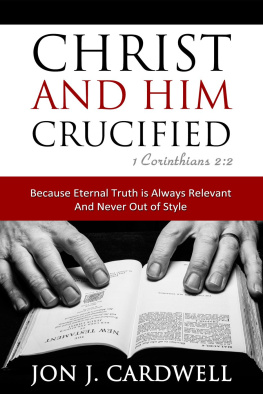
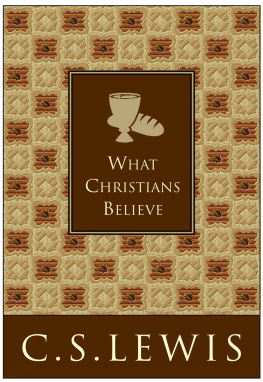
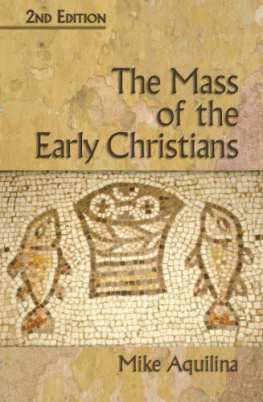
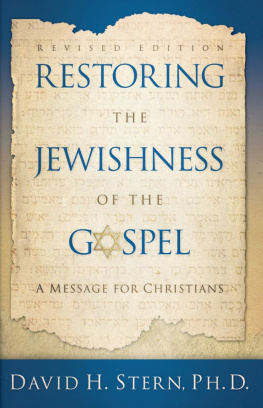
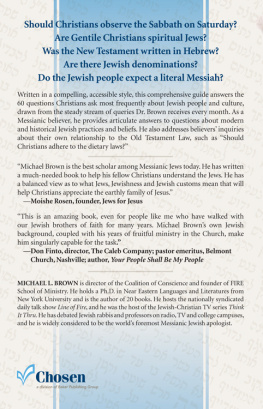
 TM The paper used in this publication meets the minimum requirements of American National Standard for Information Sciences Permanence of Paper for Printed Library Materials, ANSI/NISO Z39.48-1992.
TM The paper used in this publication meets the minimum requirements of American National Standard for Information Sciences Permanence of Paper for Printed Library Materials, ANSI/NISO Z39.48-1992.